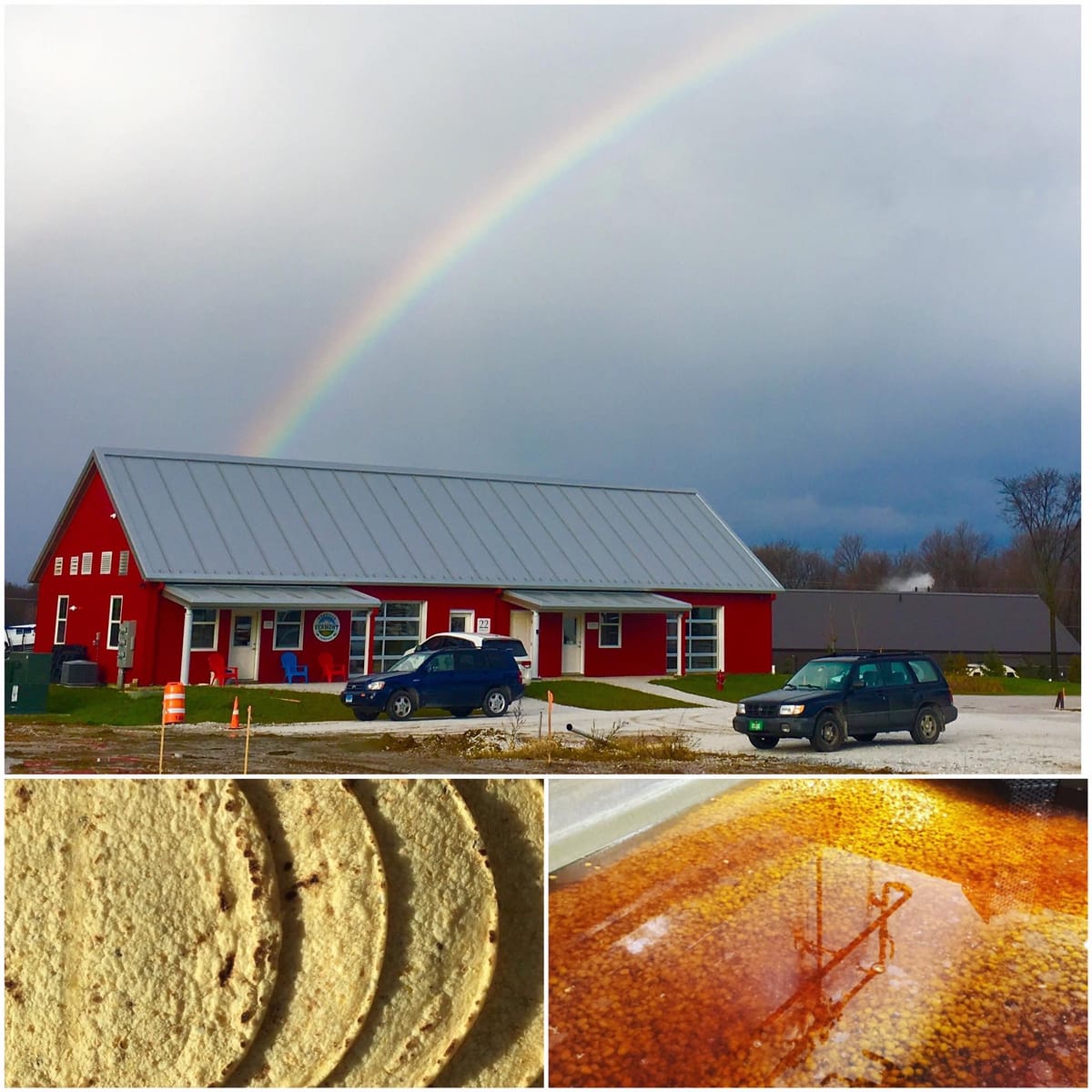Day-to-Day Operations at the Vermont Tortilla Company
At Vermont Tortilla Company, we blend tradition and precision to craft organic tortillas. From nixtamalizing corn to grinding masa and baking tortillas, every step is carefully monitored. We balance production with deliveries and shipments, ensuring top-quality tortillas every day.

What does a workday look like at the Vermont Tortilla Company? Let's take a look!
First, in the early afternoon, we begin the nixtamalization process by cooking organic dent corn in a solution of water and lime (calcium hydroxide) for a set amount of time. Once the cooking is complete, we turn off the heat and let the corn steep until early the next morning.
Bright and early at 6:00 a.m., we wash the corn until the water runs almost clear. No two batches of corn are alike, so we analyze texture, pH, cook-through, floating particles, water clarity, kernel integrity, and color. Each of these variables must fall within a specific range before we can proceed to the next step. This final batch of clean corn is called "nixtamal," derived from the Nahuatl words nextli ("ashes") and tamalli ("cooked corn dough").
Once the corn is washed and ready, we grind the nixtamal into "masa" (corn dough). Our grinding stones rotate at 600 RPM and are typically made of volcanic rock, particularly basalt—a hard and durable stone ideal for grinding corn into masa. For the next hour, we lovingly grind all of the nixtamal into masa, adjusting for moisture content, texture, and machinability. We finish the process with a spin in our industrial-sized mixer and then set the masa aside in covered bins.
As the grinding process nears its end, we turn on our oven until it reaches 800–900°F. At this point, we can start feeding masa into the machine. The masa passes between two rollers which flatten and shape the dough into tortillas. The thickness of the tortillas can be adjusted to meet specific requirements.
The flattened masa is then cut into circular tortillas by a mechanical cutter that rotates with the dough. The excess dough is recycled back into the hopper to be used again. Once shaped, the tortillas move onto a conveyor belt, where they are heated and cooked to ensure the masa becomes soft yet sturdy tortillas. Once out of the oven, we stack them in groups of 10 and allow them to cool on a rack until they reach room temperature. We then pack them and store them in our freezers. At this point it is time to, you guessed it, start cooking the nixtamal for tomorrow!
The process needs to be carefully monitored to ensure the dough maintains proper consistency and the machine operates smoothly. But there’s more: throughout the week, we receive corn deliveries and ship out tortillas. Sometimes, halfway through production, we have to pause to handle these tasks. With a bit of juggling, we’re able to manage both production and logistics. There’s never a dull moment!
At the Vermont Tortilla Company, each workday is a blend of tradition, precision, and teamwork. From the early morning nixtamal preparation to the final packaging of tortillas, every step reflects our commitment to quality and authenticity. While the process requires careful monitoring and adjustments, it’s the rhythm of the day that keeps us moving—balancing production with receiving fresh corn deliveries and shipping out product to our distributors. No two days are the same, but the dedication to crafting the best organic tortillas remains constant. This is what makes our work both rewarding and full of energy.
